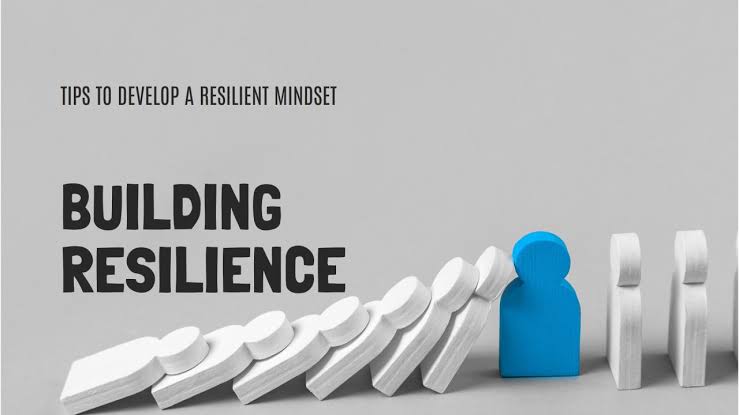Life is full of unexpected twists, setbacks, and difficult moments. Whether it’s dealing with personal struggles, workplace pressures, or sudden changes, challenges are an unavoidable part of the human experience. What makes the difference between those who thrive and those who crumble under pressure is resilience — the ability to adapt, recover, and keep moving forward despite adversity.
Resilience is not a fixed trait that some people have and others do not. It is a skill that can be learned, strengthened, and applied in both personal and professional life. By developing a resilient mindset and practicing certain habits, you can face difficulties with confidence and come out stronger on the other side.
Understanding the Nature of Resilience
Resilience is more than just enduring hardship. It is about learning from challenges, maintaining emotional stability, and finding ways to grow even when circumstances seem overwhelming. People who are resilient are not immune to stress or pain, but they possess coping mechanisms that help them navigate those feelings effectively.
Resilient individuals tend to:
- Maintain a positive yet realistic outlook
- Adapt quickly to change
- Focus on solutions rather than dwelling on problems
- Draw strength from past experiences
When you understand that challenges are opportunities for growth, you begin to see obstacles as temporary setbacks rather than permanent roadblocks.
Developing a Positive Mindset
Your mindset plays a critical role in how you respond to difficulties. A positive mindset does not mean ignoring problems or pretending everything is fine. Instead, it means focusing on what you can control, staying hopeful, and believing in your ability to overcome challenges.
Practical ways to foster a positive mindset include:
- Practicing gratitude daily by noting things you are thankful for
- Reframing negative thoughts into more constructive ones
- Celebrating small wins even in difficult times
- Visualizing positive outcomes to strengthen belief in success
By shifting your focus from what is going wrong to what is possible, you empower yourself to take action instead of feeling helpless.
Building Strong Support Networks
Resilience is often strengthened by the people around you. Having supportive relationships provides emotional encouragement, practical help, and different perspectives that can guide you through tough times.
To build and maintain a strong support network:
- Nurture close connections with friends and family
- Seek mentorship or guidance from trusted individuals
- Join communities or groups with shared values and experiences
- Be willing to offer support to others in return
Support systems not only help you cope better but also remind you that you do not have to face challenges alone.
Strengthening Emotional Regulation
Difficult situations often trigger strong emotions such as fear, frustration, or sadness. Being resilient means knowing how to acknowledge these emotions without letting them control your actions.
Techniques to strengthen emotional regulation include:
- Practicing mindfulness to stay present and grounded
- Engaging in deep breathing exercises to calm the nervous system
- Journaling thoughts and feelings to gain clarity
- Taking breaks to reset your emotional state before responding
When you can manage emotions effectively, you think more clearly and make better decisions under pressure.
Setting Realistic Goals in Tough Times
When life feels overwhelming, large problems can seem impossible to solve. Breaking challenges down into smaller, manageable goals helps you stay focused and motivated.
Tips for goal-setting during difficult periods:
- Identify the most urgent issues to address first
- Create short-term action steps you can achieve quickly
- Adjust expectations based on current realities
- Track progress and acknowledge improvements
Each small victory builds momentum, making it easier to keep going even when circumstances remain challenging.
Learning from Setbacks
Setbacks are inevitable, but they can be valuable learning experiences. Resilient people view failures as feedback rather than final verdicts. By analyzing what went wrong, you can adjust your strategies and increase your chances of success in the future.
To turn setbacks into lessons:
- Reflect on the situation without self-blame
- Identify factors you could change or improve next time
- Recognize external factors beyond your control
- Use the experience to strengthen future decision-making
A mindset that embraces learning transforms challenges into stepping stones for personal growth.
Maintaining Physical Health for Mental Strength
Your physical well-being directly affects your ability to handle stress. A healthy body supports a strong mind, allowing you to respond to challenges with greater resilience.
Key habits for physical resilience include:
- Getting enough sleep to restore mental clarity
- Eating balanced meals that provide sustained energy
- Exercising regularly to reduce stress and boost mood
- Staying hydrated to support brain function
When you take care of your body, you enhance your mental stamina and emotional stability.
Practicing Flexibility and Adaptability
Life rarely goes exactly as planned, and the ability to adapt is at the core of resilience. Flexible individuals adjust their strategies when faced with new realities, allowing them to continue making progress even in uncertain situations.
Ways to develop adaptability:
- Stay open to alternative solutions
- Avoid rigid thinking that limits possibilities
- Learn new skills that can be applied in different contexts
- Accept that change is a natural part of life
Adaptability ensures that you can respond effectively, no matter how unpredictable circumstances become.
Staying Committed to Your Purpose
Purpose gives meaning to challenges and motivates you to keep going when times are tough. Whether it’s a personal mission, professional goal, or value you deeply believe in, having a sense of purpose keeps you anchored during turbulent times.
To strengthen your sense of purpose:
- Identify what matters most to you in life
- Align your actions with your values
- Remind yourself of your long-term vision regularly
- Use your purpose as a guide when making difficult decisions
When your actions are connected to something meaningful, resilience comes more naturally.



